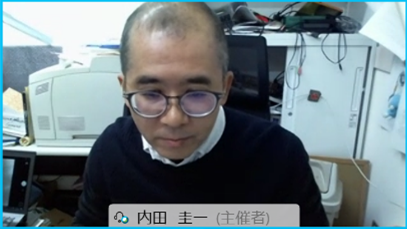[On-site class] An online on-site class on "marine plastic waste" was held for 4th to 6th graders at Koizumi Elementary School in Kesennuma City.
2021/2/10
On February 2021, 2 (Tuesday), a visiting class was held for 9th to 4th graders (6 students) at Kesennuma City Koizumi Elementary School (Principal Natsue Onodera).
At the Sanriku Satellite of our university, we are working on educational dissemination activities in response to requests from elementary, junior high and high schools that are engaged in marine education.This time, from the perspective of preventing the spread of the new coronavirus, the three venues of a university in Tokyo, an elementary school in Kesennuma, and the Sanriku Satellite were connected online.
During the event, Associate Professor Keiichi Uchida (Tokyo University of Marine Science and Technology, Faculty of Marine Resources and Energy) gave a lecture on the current state of plastic waste countermeasures overseas and what kind of issues they face. We introduced whether an investigation was being conducted, what we know so far, and what we are currently doing.
First, a map was used to show the distribution of microplastics on the surface of the sea. Microplastics are found in waters around the world, from the Arctic Ocean to the Antarctic Ocean, with the highest concentrations in the waters surrounding East Asian countries. was explained.
Next, we actually observed the actual "microplastics" sent to the elementary school in advance.This was collected by the Tokyo University of Marine Science and Technology's oceanographic research ship "Umitaka Maru", and it was collected using a Newston net (a tool for collecting microplastics) to see how the survey of drifting debris is conducted. I learned how.
The students, who had been conducting preparatory classes on marine plastic litter, asked various questions, such as how many years it would take for the current marine plastic litter to disappear.
Lastly, Professor Uchida said, "For marine debris surveys, we are collaborating with other universities and overseas research joint institutions, and sharing information with countries in Southeast Asia, such as Indonesia, Thailand, Vietnam, and Cambodia. We are working together. There are some things that are difficult during the corona crisis, but it is important to start with what we can do to reduce plastic in our daily lives." I was.
Thank you to everyone at Koizumi Elementary School.

A class (at Koizumi Elementary School)

Professor Uchida giving an online lecture

